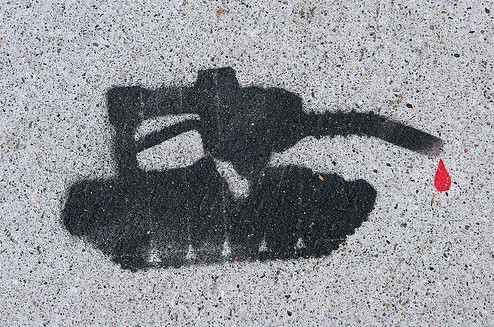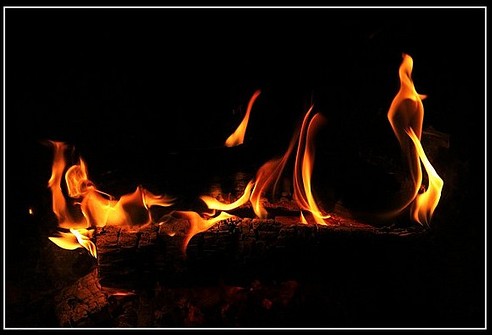Heating
Article outline
- Introduction
- Check boilers regularly
- Restrict heating to the most frequently occupied rooms
- Limit the amount of useless heating
- Use less heating in your home
- Resort to small, portable heaters
- Optimize heat exchanges
- Place aluminum panels behind radiators
- Optimize the use of heat from the sun
- Clean heat systems
- Improve your home's insulation
- Conclusion
Introduction
In France, heating is responsible for 20% of greenhouse gas emissions, which is much higher than the 12% that comes from cars. How can we reduce our greenhouse gas emissions from heating appliances by as much as possible?
Check boilers regularly
A boiler that is well-maintained (= at least 1 visit a year from a heating engineer) will reduce your energy consumption noticeably as well as the risks of carbon monoxide poisoning, which kills several hundreds of people in France every year. Benefits: Financial and Sanitary
Indeed, having a maintenance contract implies a boiler that will last 2 to 3 times longer, is 5 times less likely to break down, saves 8 to 12 % on fuel, and all for a modest sum starting from only 140 dollars... whilst avoiding the risk of being one of the hundreds of those who die from carbon monoxide poisoning in France every year.

Restrict heating to the most frequently occupied rooms
Keep heating in rooms that are rarely occupied to a minimum. What's the use of heating a room that is used only once a year? Heat it only when it is being occupied.
Limit the amount of useless heating
If you go away for the weekend, reduce the heating in your home to between 10 and 15°C (50 to 60°F). Leaving for a whole week or longer? Set your heater to frost-guard mode; you will still save that much.

Use less heating in your home
1°C less = 7 % less energy (1°F less = 4% less energy). Less heating means lower energy consumption, and therefore saves you money, pollutes less, and keeps you in better health. From now on, heat your home to between 16 and 19°C (61 and 66°F) rather than the usual 20 to 22°C (68 and 72°F).
Here's an anecdote: Although I don't directly pay for the heating since it is included in the service charges, I only heat my place to 17-18 °C (63-64°F) while still being able to walk around in just a T-shirt. See how easy it is?
Indeed, if you set the heating to 17°C (63°F) instead of 20°C (68°F), your body would have to consume more calories to maintain a temperature of 37°C (99°F), which would increase your energy consumption and help you maintain your figure. If you really feel too cold, put on a sweater.
NB: Nonetheless, don't lower the temperature to below 15°C (60°F), especially if you have young children.
Resort to small, portable heaters
Heat your home to a low temperature limit (say 16°C, or 61°F). If you feel too cold, use a portable heater to heat just that particular room. It is better to heat one room to 20°C (68°F) and the others to 16°C (61°F) rather than heat all of them to 18°C (64°F)...
Optimize heat exchanges
If it's too hot in one room and too cold in another, don't open a window in the former or turn up the heating in the latter; instead, simply open the door so that heat can flow from the hotter to the colder room. From now on, when the oven is on or when you are having a Raclette party, use the heat generated by these appliances to heat the entire house by opening the doors to the rooms.
Place aluminum panels behind radiators
A guy on a TF1 program (a French TV Channel) featuring great ideas on energy savings recommended placing aluminum panels behind radiators that would reflect the heat flowing from the radiator towards the outside wall back into the room. This would save 5% a year on heating. Since it doesn't cost much, it wouldn't hurt to try it out.
Optimize the use of heat from the sun
Whether you have a solar water heater and panels or not, anyone and everyone can make use of the sun's energy for heating purposes. How this works: when the weather is fine and the sun is beating down, make sure that you open your windows so that your house can soak up all the sun's heat. Once the sun is shining less brightly or when night falls, close the shutters to retain the heat.
In the spring, air out your home as much as possible in the afternoons when it is hotter. If it is 5°C (41°F) in the mornings and 25°C (77°F) in the afternoons, you would, by airing out in the afternoons, have a home at 25°C (77°F) that would retain this heat for a whole day until you open your windows again the following day.
Clean heat systems
If you need to change your heat system, opt for a cleaner one. If you currently own an oil boiler, buy a gas boiler at the very worst. If you own a gas boiler, opt for a condensing boiler that will consume 20% less and for which you may benefit from a tax credit, or go for a solar water heater, solar panels, a heat pump, etc.
Improve your home's insulation
Use triple (or at the very least double) glazing on north-facing windows, improve insulation on the roof, etc. Remember to insulate well around your house too (20 to 30 cm of insulation on the outside walls should be the strict MINIMUM). You'll save all the more by heating less. And even if it requires some investment, this will pay for itself in about ten years or so, at the very most.
So if you haven't any money, borrow the entire sum required for the renovation work from the bank: borrowing at an interest rate of 5% for equipment with an efficiency of up to 10 to 15% will enable you to save money starting from the very first year, without investing in anything right out of your pocket, and all for the greater good of the planet.
Here's an anecdote: Swiss homes are so well insulated that even in the middle of winter when temperatures outside are negative, it is perfectly comfortable inside without the need for ANY heating. How this works: solar energy that enters through the windows is not allowed to escape back outside. The only flaw in this type of housing? Electric heating is necessary if there is a lot of cloud cover 5 days in a row.
Conclusion
While you used to pay $1400 a year on heating your house, you will now save 2 to 5% thanks to proper maintenance, the same amount by turning down the heating when no one is home, and 20% by heating to only 17°C (63°F) instead of 21°C (70°F). Finally, you could save 20% with a condensing boiler. That is, a cut of between $809 and $861 in your energy bill per year, i.e. savings of about $560 a year. You could save even more if you choose to heat using a solar water heater, which will pay for itself in just a few years, or even sooner if your home is well insulated.
Proof of this? Buildings that are constructed after 2012 will have to be 6 times more energy efficient than those constructed in 1970, and those beyond 2020 will be positive energy ones (producing more energy than they consume)...
Be-ecolo recommends the following website Traduction Ink
You like this website? You can contact us and put this page as your home page